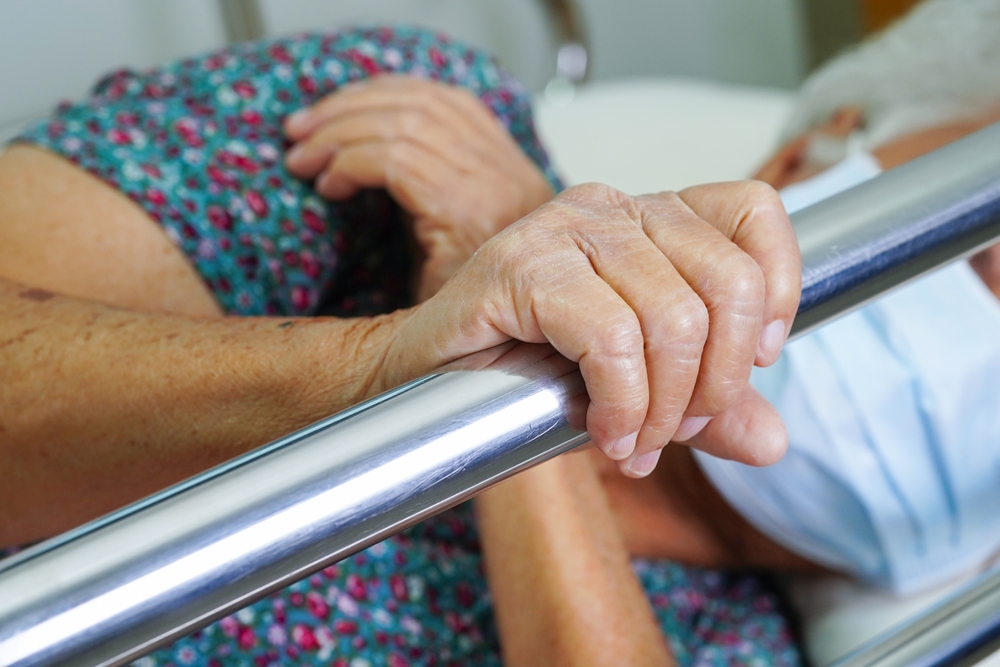Nursing Home Neglect
Nursing home neglect and abuse are on the rise as the baby boomer generation matures. More and more seniors find themselves in the hands of nursing homes each year. However, not all nursing homes were created equally, and some actually abuse their patients. Nursing home neglect can take many forms, but the end result is always the same: poor quality of life for our loved ones. This type of behavior is inexcusable, and a neglected loved one is entitled to compensation for their pain and suffering. Instead of feeling powerless in the face of neglect, it is in the best interest of your loved ones to reach out to an experienced attorney.
Understand, however, that neglect doesn’t always take the form of failing to provide a patient with medicine. There is also emotional and social neglect in which a patient is left alone for long periods of time or not permitted to socialize with others. In addition, there are basic needs and hygiene neglect where a care provider fails to provide a quality standard of living.
Signs of Nursing Home Neglect
 It isn’t always easy to identify nursing home neglect. However, if you suspect that your loved one is being mistreated, look for the following common warning signs of nursing home neglect:
It isn’t always easy to identify nursing home neglect. However, if you suspect that your loved one is being mistreated, look for the following common warning signs of nursing home neglect:
- New wounds and bruises
- A worsening medical condition
- Terrible hygiene
- A sudden drop in body weight
- Uncharacteristically timid or fearful behavior
Different Types of Nursing Home Abuse and Neglect in Rockford, Illinois
Nursing home abuse and neglect can take many different forms in Rockford and throughout Illinois. Since there are so many different types of abuse, it can be difficult for friends and family members of elderly nursing home residents to identify the signs and symptoms of neglect. Indeed, many signs of nursing home negligence are not apparent, and it is possible that hundreds of thousands of cases of elder abuse go unreported every year.
According to the National Council on Aging (NCOA), about 1 out of every 10 adults aged 60 and up have experienced some type of abuse or neglect, and some researchers estimate that as many as five million seniors suffer harm from nursing home abuse or neglect on an annual basis. Of the reported cases, some research suggests that 1 out of every 24 cases of elder abuse are properly reported, or only about 4 percent of all cases.
How can you know whether or not you should worry about a loved one’s safety? Properly recognizing the many and varied symptoms of nursing home negligence requires a basic understanding of the different forms that elder abuse can take:
- Physical abuse, or the intentional infliction of any kind of physical pain or harm upon an older adult that can have symptoms such as cuts, bruises, burns, broken bones, or changes in behavior that suggest a senior is scared or has become withdrawn and depressed.
- Emotional abuse, or any intentional infliction of emotional distress on a senior through verbal threats, verbal assaults, harassing behavior or language, humiliation, or intimidation. Signs of this type of abuse commonly include a senior who shows signs of being scared of a particular staff member or unexplained dislike of a staff member, becoming withdrawn or uninterested in usual activities, and depression.
- Sexual abuse, which is unwanted sexual activity with an elderly adult and can include “touching, fondling, intercourse, or any other sexual activity with an older adult, when the older adult is unable to understand, unwilling to consent, threatened, or physically forced,” according to the NCOA. Signs of sexual abuse commonly include unexplained sexually transmitted infections (STIs), bloody or torn underwear, and bruises, cuts, or bleeding in the area of a senior’s genitals. Sexual abuse is particularly underreported in situations where a senior has a cognitive impairment like dementia that makes it impossible for the senior to consent to the sexual activity or to report it.
- Confinement, which is the intentional restraining (or isolation) of an older adult for reasons that are not medically necessary, and signs frequently include restraint marks around the arms or legs, bedsores, or unexplained bruises. Confinement can also produce emotional or psychological symptoms in seniors.
- Willful deprivation, or intentionally denying a senior appropriate medication, medical care or treatment, food, shelter, physical assistance with activities of daily living, or medical devices like walkers or hearing aids or eyeglasses. Indications that a senior has been subject to willful deprivation may include unexplained weight loss, malnutrition, poor hygiene, or a generally unkempt appearance.
- Passive neglect, or the (unintentional) failure to provide a senior with medical care, physical assistance, food, and clothing, or other necessities. Passive neglect often arises when a nursing home or assisted-living facility is understaffed and the workers are unable to provide the level of care to each elderly resident that is appropriate for the circumstances. Common signs of passive neglect include bedsores, broken bones or brain injuries from falls, untreated infections, malnutrition, unexplained weight loss, and poor hygiene.
- Financial abuse, which involves the intentional misuse of an older adult’s finances. Any signs that a senior’s finances are being depleted or that another party has access to an elderly nursing home resident’s bank accounts should be cause for concern.
If you have any concerns at all about a senior’s safety or well-being, it is better to be safe than sorry. You should seek advice from an experienced and compassionate Rockford nursing home neglect lawyer about your worries. In many cases, an elderly nursing home resident’s injuries may indeed be the result of nursing home abuse or neglect.
Is There a Difference Among Nursing Home Neglect, Abuse, and Negligence?
Many different phrases are used to describe elder abuse that happens in nursing homes or skilled nursing facilities. To be sure, you might hear about senior injuries resulting from nursing home neglect, nursing home abuse, or nursing home negligence. Are these terms interchangeable, or do they all have different meanings?
Generally speaking, you may hear these terms used interchangeably, although they may have specific meanings in a particular context. For example, the term “nursing home abuse” is a broad phrase that refers to the different types of harm that can occur in a skilled nursing facility in Illinois or elsewhere in the country, and it includes passive neglect and negligence that results in injuries.
Yet the term “nursing home neglect” can also refer to intentionally abusive actions such as willful deprivation. In most cases, the term “nursing home negligence” will refer to an injury claim arising out of a nursing home’s failure, whether unintentional or not, to provide proper care for an elderly resident at a facility.
Liability for Nursing Home Abuse and Neglect: Who Can I Sue in Rockford?
Depending upon the specific circumstances of the case, one or more parties may be responsible for injuries resulting from nursing home abuse or neglect, including but not limited to:
- The nursing home where the injuries occurred
- The staff member who caused the injuries
- Physician or other health care provider who failed to report the injuries
- Resident at the facility who perpetrated acts of abuse or neglect (to be sure, seniors living in nursing homes can be responsible for acts of physical or sexual abuse, for example, against another resident)
Nursing Home Resident Rights in Rockford, Illinois
When you are considering a nursing home negligence claim or trying to learn more about nursing home resident rights and the responsibilities that facilities have to residents and patients, it is important to know that the Illinois Department on Aging outlines residents’ rights in long-term care facilities. When nursing homes violate residents’ rights, they may be responsible for damages.
Contact Our Illinois Nursing Home Abuse Lawyers in Rockford, IL
When you suspect that a loved one has been the victim of nursing home neglect, you need to find an attorney who is experienced in these matters. The Fisk & Monteleone Ltd. Law Firm in Rockford has been helping the victims of neglect for over a combined 55 years, and we want to make sure that your loved ones receive the care and treatment they deserve.
Call us today toll-free at 815-962–0044 for a free case consultation. Put your troubles into our hands so you can begin to heal without worries about the future.
Get A Free Consultation
Put your case in our experienced hands. Get started now.




